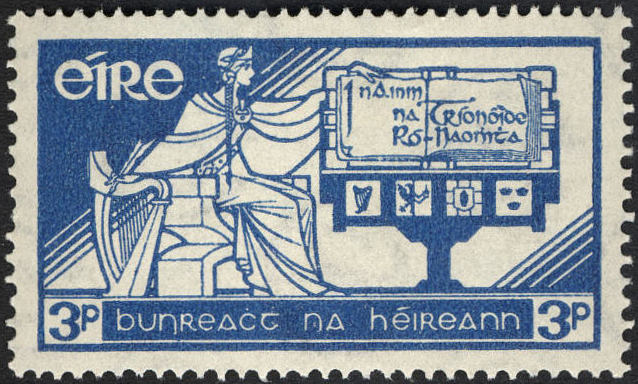The campaign against the Constitution

This article was first published in the Tara Foundation Winter magazine of 2007/8.
Andrew McGrath
The Constitution is the fundamental legal
document of the Republic. It defines the nation's territorial claims,
the rights and duties of its citizens, and the powers of its elected
representatives. However, it has been, and continues to be, the subject
of depreciation and derision in political policy and media opinion.
However, these same sources confirm its importance through the
consistency and intensity of their opposition. The pervasive contempt
for the Constitution among politicians has been highlighted on several
occasions by this campaign. Brian Cowen TD, in his previous role as
Minister for Foreign Affairs, stated that it was the policy of the Irish
Government to dispense with the requirement to give written permission
for Irish citizens to be 'honoured' by the British State, even though
this is expressly required by the Constitution. More recently, An
Taoiseach Bertie Ahern proposed introducing an honours system in
Ireland, in emulation of the system which exists in Britain, a move
which is also unconstitutional. The numerous instances of
unconstitutional legislation added to the Irish statute books in recent
years, not the least of which is the National Monuments Act 2004, is
ample testimony to the prevailing state policy.
However, a more urgent momentum seems to be underway. This coincides
with the impending referendum on the EU 'Reform Treaty', which is simply
the EU Constitution redubbed with a less threatening name. Ireland is
to be the only country in the EU to hold a popular mandate on this
Treaty, despite, or because of, intense opposition to the document in
Europe. All the major political parties have indicated their assent,
even before any degree of public consultation or debate has taken place.
It is an interesting fact that Ireland has emulated Britain in demanding
certain exemptions from human rights and security arrangements
contained within the Treaty. The provisions in question are in fact
already contained in existing EU law, but the Treaty will enable the EU
to impose punitive measures directly against member states found to be
in violation of EU law. This implies that the EU will potentially be
able to supersede national law in any respect. The rationale offered by
the Government for duplicating Britain's position is a recognition of
the supposed fact that Ireland and Britain share a 'common law' system,
which is stated to be different from that in the rest of Europe. Nothing
could be further from the truth. Ireland's 'common law' tradition was
carried over from the status quo previous to Independence. Irish law has
never been codified, and so this problem has never been properly
addressed. However, Article 15 of the Constitution rules out judge-made
law, the hallmark of 'common law', stating that the Oireachtas is the
only body that can promulgate law. The Irish Constitution, by
definition, sets Ireland's legal system apart from that of Britain,
which has no written constitution.
The idea seems to be to maintain the notion of Ireland's legislative
commonality with Britain until the European Constitution has been
ratified, which, incidentally is disgracefully regarded as a foregone
conclusion by every political party. There has been a noticeable rise in
the level of cultural propaganda on behalf of Britain, in lock-step
with cultural denigration of the Irish War of Independence. Remembrance
Sunday, in which where British wars, including the war waged against the
newly-independent Irish state from 1919-21, are celebrated, was
observed in Dublin this year, and attended by the President of Ireland.
There has been a campaign in favour of a visit to Ireland by the Queen
of England, by the Irish President, and lately also by Mr. Ahern. The
media and political theme of closeness between the Republic and Northern
Ireland and repeated references to 'Ireland' as somehow encompassing
these two different jurisdictions, is cultural propaganda. The aim is
ultimately to propose a 'reunification' of Ireland under the legislative
control of Britain; in other words, the abolition of the Irish
Constitution and the end of the Republic. This has been Britain's policy
ever since the end of the War of Independence, and was the rationale
behind the division of Ireland into North and South in the 1922 Treaty.
It is also an objective that has considerable support among politicians
and media in the Republic.
© The Tara Foundation, 2008
